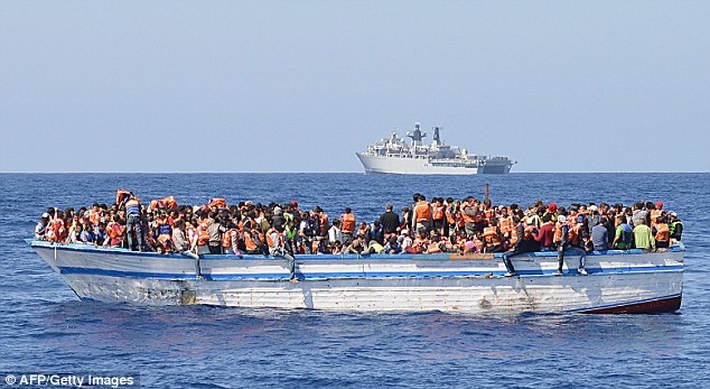|
If the world would be ranked along a resilience index, European countries would rank very low. The British have shown their ignorance by tackling migration full-front as a threat and are currently even sacrificing their own economic participation in Europe for the sake of "keeping them out".
Currently the British have massive budgets available to 'curb migration'. By the way, they could as well have stayed in Europe as also the European Union has framed quite a number of their 'development efforts' as ways to reduce migration. This frame has now been copied by the Dutch in the coalition agreement that was signed of in the past week by four political parties (including my own). Investment in development cooperation to address root causes of migration. I must say, I feel ashamed that we have not been able to undo this framing in a timely manner, despite support from scientists and media who have challenged this causal link and even supported the opposite. Increase in welfare will at first be reason for more migration. It is clear that the number of people trying to reach Europe has increased over the last couple of years. It is also clear that this partly results from poor economic opportunities at home. It is however forgotten that the majority of these masses have just escaped from brutal regimes in countries where human rights are not respected. Having trumped the human rights agenda in the eighties and nineties, European powers should have been the first to welcome people escaping these regimes (like Syrians and Eritreans). A two pronged approach should have been followed in which international pressure on those regimes would be mounting to change their behaviour, with a clear threat of military intervention to restore law and order and the potential removal of lawless regimes. Voting with their feet Instead, once gain the golden egg is considered to be development assistance. During the last decade of neo-liberal rule, the silent objective it served was to improve trade relations. Developed nations with stable governments would provide for better trade partners. Economic diplomacy was the buzz-word, with the state in the lead role. Although Europeans were deeply involved in democratisation processes before, in recent years European attention and investment in good governance was mainly geared to generate an enabling business environment. This lack of attention for democratization and good governance lead to big resentment with groups excluded from the political and economic system. No longer committed to a government that did not serve their interests, they voted with their feet. Can you blame young African men for trying their luck in Europe if staying at home would mean a lifelong military service, like in Eritrea? But also can we blame Senegalese youngsters for trying their luck in Paris, if at home economic opportunities are bleak? The dead bodies washing up our shores in Europe have done two things. It brought the plight of various people groups back to the political centre in Europe. At the same time this claim making power has been contested by excluded groups in Western societies. They fear that others will eat into their social service provision or compete for jobs in the labour market. Hence the political response has been to provide for jobs and protection at home or near to home. Though this narrative may be fully understood from a political point of view, it does not sit well with a development school of thought which has learnt over many years that it requires people to fight poverty and injustice themselves, but would be greatly helped with international solidarity. We should stand with the poor rather than provide for the poor with attention to human dignity and self-worth. Connecting capacities For the time being it looks like security concerns are dominating the discourse and treating the ring of instability around Europe will be prioritised over and above addressing human rights concerns in countries a little bit further away. This won't help much in addressing political and social instability on the long run. A more positive frame would have greatly helped. Also migrants leave a large part of their identity at home and stay connected to situations at home. But they also bring part of their identity with them, offering us an opportunity to connect. This connection could be leveraged to build better understanding and improve relations between societies. It is up to international civil society organizations to support the voice of the voiceless when political deals are being made and facilitate the exchange between civil societies across the world. This should remain their focus, without being distracted by slightly higher budgets. Increased investment in development cooperation should be evaluated in terms of impact on poverty eradication, even if this would result in more migrants aiming for Europe. Hope we can still turn the tide, though the waves seem overwhelming.
0 Comments
Your comment will be posted after it is approved.
Leave a Reply. |
About meMy name is Reinier van Hoffen. U®Reading
Click here for a summary.
Also find the text of a lecture Dr. Achterhuis held at the 2012 Bilderberg conference. Archives
August 2022
|
AddressNachtegaallaan 26
Ede, the Netherlands |
Telephone+31 (0)6 1429 1569
|
|

 RSS Feed
RSS Feed
















